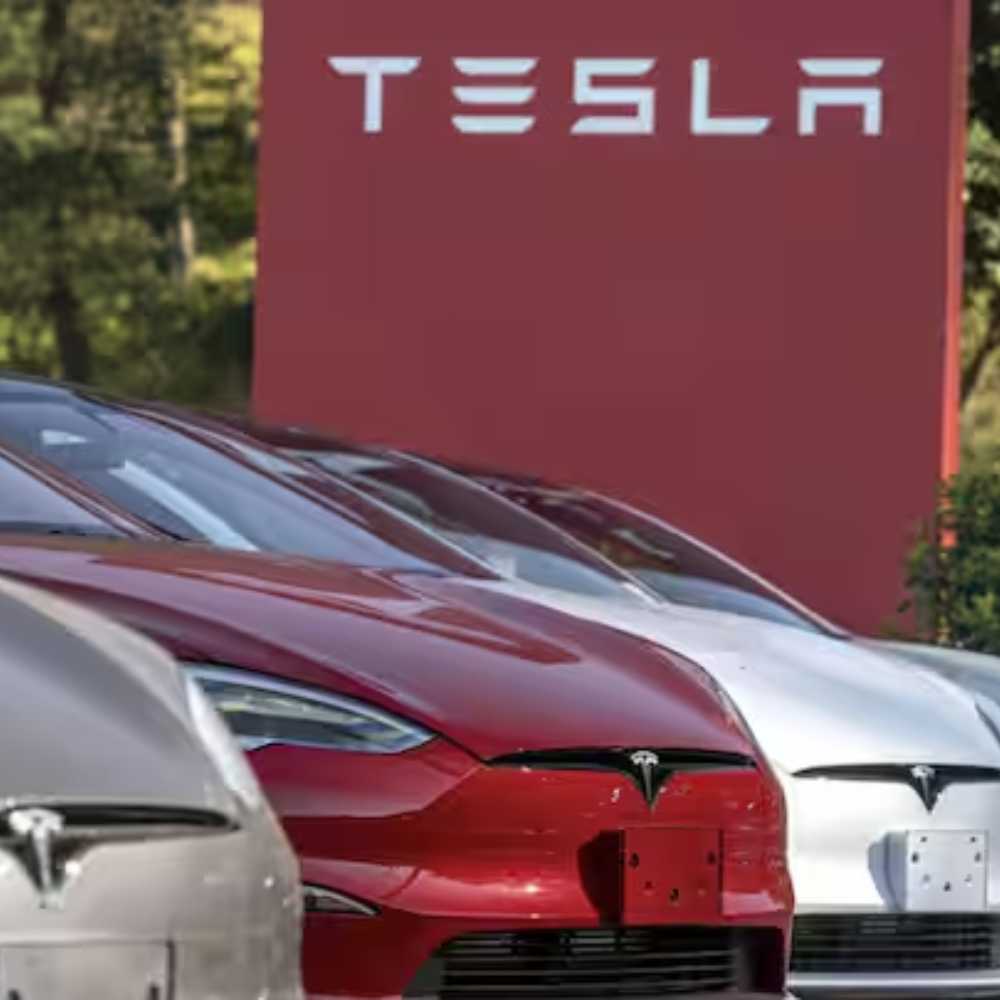EU Reduces Tariffs on Chinese Tesla EVs and Other Firms

EU Reduces Tariffs on Chinese Tesla EVs and Other Firms
- Category: News

[Source – newsbytesapp]
Substantial Cuts in Tariffs for Tesla and Other EV Manufacturers:
The European Union has announced a significant reduction in tariffs on Chinese Tesla EVs, cutting the planned duty from 20.8% to 9%. This decision, which also impacts other Chinese EV manufacturers, marks a shift in the EU’s approach to trade measures against electric vehicles imported from China. The reduction follows the EU’s June decision to impose higher tariffs on these imports, citing concerns over unfair subsidies and potential economic harm to European EV producers.
In its recent draft decision, the European Commission revealed a preliminary conclusion that the Chinese battery-electric vehicle (BEV) sector benefits from substantial subsidies, prompting the need for provisional countervailing duties. The commission has now revised its proposed duty rates after considering feedback from various stakeholders. The adjustment reflects a nuanced approach to addressing subsidy-related concerns while balancing trade relations.
Revised Tariff Rates and Impact on Specific Companies:
Tesla, which had requested a recalibration of tariffs due to specific subsidies it receives in China, will benefit from a reduced import duty of 9%. This is a notable decrease from the initially proposed 20.8%. The reduction follows Tesla’s formal request for a re-evaluation of its tariff rate, which has led to a positive response from the EU. In U.S. morning trading, Tesla shares saw a rise of more than 1% following the announcement.
Other Chinese Tesla EV manufacturers have also seen tariff adjustments. BYD’s tariff has been slightly reduced from 17.4% to 17%, Geely’s from 19.9% to 19.3%, and SAIC’s from 37.6% to 36.3%. These adjustments reflect the EU’s commitment to addressing concerns related to unfair subsidies while maintaining fair competition within the market. However, responses from BYD, Geely, and SAIC were not immediately available.
Effects on Non-Cooperating Companies and Future Implications:
The EU’s latest decision also affects companies that did not cooperate with the investigation into China’s subsidies. These firms will face a higher tariff rate of 21.3%, an increase from the previously anticipated 20.8%. Conversely, non-cooperating companies will now face a reduced tariff of 36.3%, down from 37.6%. This revised approach highlights the EU’s strategy to incentivize cooperation and compliance with trade regulations while addressing the broader issue of subsidization.
The EU’s adjustments to the tariff rates represent a significant shift in trade policy concerning Chinese Tesla EVs, balancing the need to protect European industries with the desire to foster fair trade practices. As these measures come into effect, they are expected to have a notable impact on the dynamics of the EV market, influencing both trade relations and market competition in the European Union.








купить диплом академии купить диплом академии .
Узнайте, как приобрести диплом о высшем образовании без рисков
Липовый диплом, который говорит сам за себя
kyc-diplom.com/diplom-articles/lipovyj-diplom-kotoryj-govorit-sam-za-sebya.html
Купить диплом старого образца, можно ли это сделать по быстрой схеме?
Balanceo dinamico
Dispositivos de calibración: fundamental para el desempeño estable y óptimo de las equipos.
En el entorno de la innovación avanzada, donde la productividad y la fiabilidad del aparato son de alta trascendencia, los dispositivos de equilibrado desempeñan un rol vital. Estos aparatos especializados están diseñados para calibrar y regular piezas dinámicas, ya sea en equipamiento de fábrica, vehículos de desplazamiento o incluso en aparatos caseros.
Para los expertos en soporte de dispositivos y los técnicos, manejar con dispositivos de balanceo es fundamental para proteger el desempeño suave y confiable de cualquier aparato móvil. Gracias a estas alternativas avanzadas innovadoras, es posible disminuir considerablemente las oscilaciones, el sonido y la presión sobre los sujeciones, prolongando la tiempo de servicio de partes importantes.
También importante es el rol que tienen los equipos de ajuste en la atención al consumidor. El soporte especializado y el soporte continuo utilizando estos dispositivos posibilitan dar soluciones de óptima estándar, mejorando la contento de los clientes.
Para los dueños de proyectos, la inversión en unidades de equilibrado y medidores puede ser fundamental para optimizar la efectividad y productividad de sus aparatos. Esto es particularmente trascendental para los inversores que administran medianas y modestas organizaciones, donde cada aspecto importa.
Por otro lado, los sistemas de balanceo tienen una vasta implementación en el ámbito de la prevención y el control de calidad. Facilitan encontrar potenciales defectos, impidiendo mantenimientos onerosas y daños a los aparatos. Incluso, los información obtenidos de estos equipos pueden emplearse para optimizar métodos y incrementar la visibilidad en sistemas de búsqueda.
Las sectores de implementación de los sistemas de calibración incluyen múltiples industrias, desde la elaboración de vehículos de dos ruedas hasta el control ecológico. No influye si se considera de enormes fabricaciones de fábrica o limitados locales caseros, los aparatos de equilibrado son fundamentales para asegurar un funcionamiento productivo y libre de paradas.